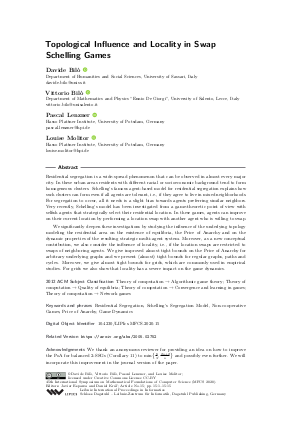LIPIcs.MFCS.2020.15.pdf
- Filesize: 0.66 MB
- 15 pages

 Creative Commons Attribution 3.0 Unported license
Creative Commons Attribution 3.0 Unported license




































Feedback for Dagstuhl Publishing